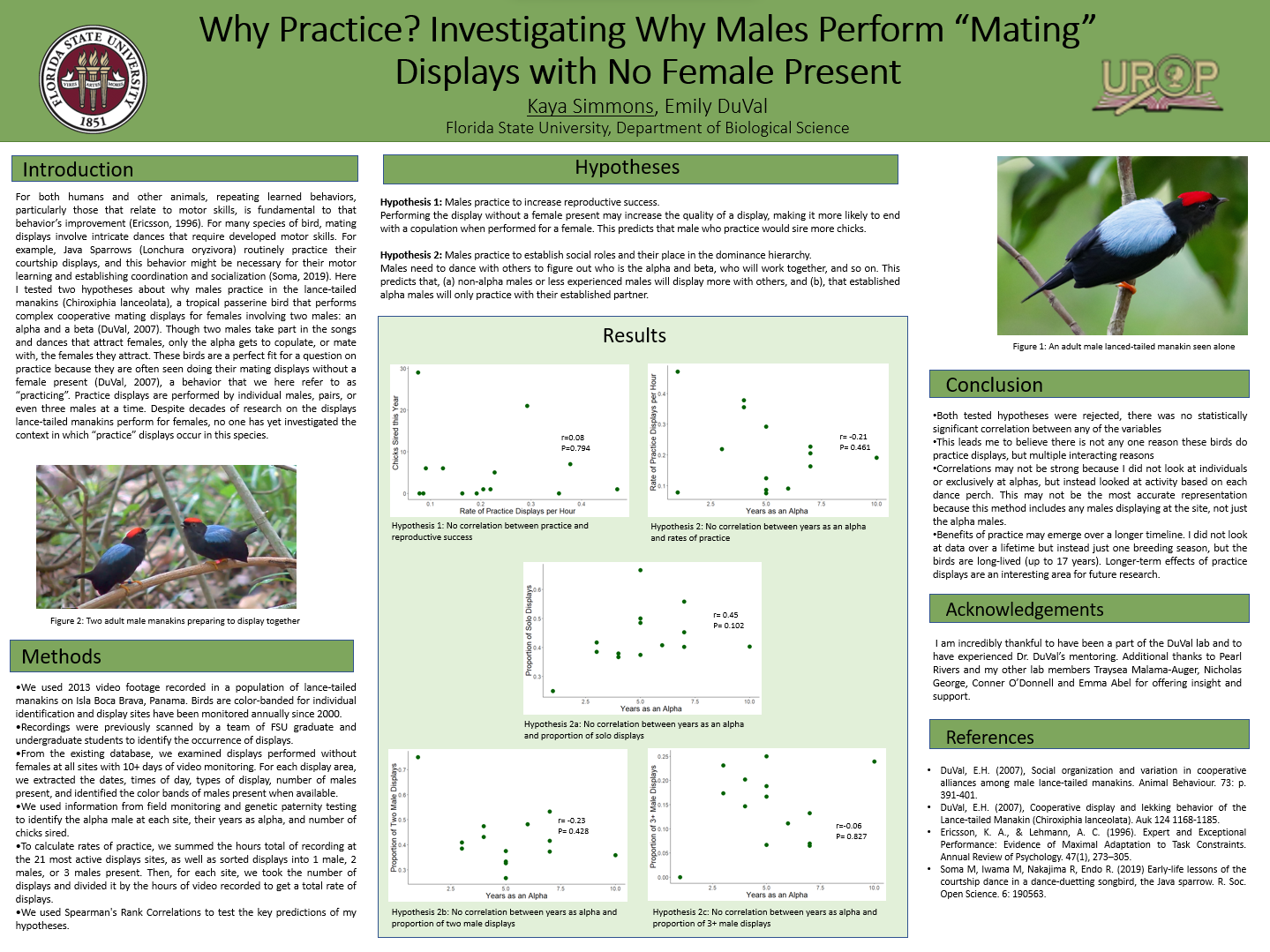Research Symposium
23rd annual Undergraduate Research Symposium, April 6, 2023
Kaya Simmons Poster Session 4: 4:00 pm - 5:00 pm/ Poster #229

BIO
I am first year student with a goal of a career in research in non-human in behavioral biology/neuroscience. I am especially interested in ornithology and worked with parrots throughout all of high school. I love a mix of lab and field work and would like to do an honors in the major project in my later years.
Why Practice? Investigating Why Males Perform “Mating” Displays with No Female Present
Authors: Kaya Simmons, Emily DuValStudent Major: Behavioral Neuroscience
Mentor: Emily DuVal
Mentor's Department: Biology Mentor's College: Arts and Sciences Co-Presenters:
Abstract
Lanced-tailed manakins (Chiroxiphia lanceolata) are a species of bird in which males perform complex courtship dances for females. Males can be seen doing this dance alone, but typically work in pairs that involve an alpha and a beta. Only the alpha gets to mate with the female if successful. These birds are frequently seen doing their mating display dances without a female present, which leads me to believe they are practicing the dance. Males can be seen “practicing” solo, with a partner, or in groups of three or more. I have developed two non-exclusive hypotheses on why these birds may perform mating displays without a female present: 1) Males practice to increase reproductive success and 2) Males practice to establish social roles and their place in the dominance hierarchy. To test these hypotheses, I extracted data from previously recorded and analyzed video footage of manakin display sites. I found no significant correlations between rates of practice displays and reproductive success or between years of alpha status and general rates of practice, as well as no correlations between years as alpha and the number of males practiced with (solo, two, three or more). These results lead to more questions on why this behavior may occur, and a longitudinal study may be a good future direction for this question.
Keywords: Behavioral ecology, ornithology

